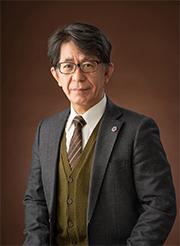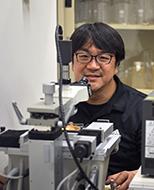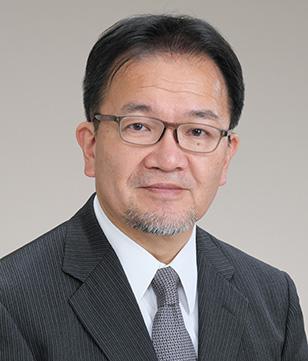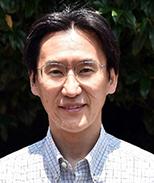Academics
School of Integrative and Global Majors (SIGMA)
Outline of the School of Integrative and Global Majors (SIGMA)
In 2011, the University of Tsukuba initiated an expansion of multidisciplinary degree program by establishing a central headquarter, the School of Integrative and Global Majors (SIGMA), headed by Vice President of Education. The aim of the SIGMA is to direct and administer undergraduate and graduate interdisciplinary degree programs.
Greetings from Dean of the SIGMA (Vice President of Education)
As part of our higher education reforms, the University of Tsukuba has launched a series of degree program reforms with the aim of ensuring the quality of academic degrees awarded. Focusing on student learning outcomes, these degree programs imply systematically designed education programs which enable students to clarify and gain their academic competences in accordance with their area of study and level of university degree, such as bachelor's, master's, doctoral, and professional. In order to transform the current university-centered degree program into student-centered program, the university is currently formulating three academic policies such as degree granting, curricular organization, and admission for undergraduate and graduate programs. The Doctoral Program in Human Biology and the Doctoral Program in Empowerment Informatics were accepted to the Leading Graduate School Doctoral Program supported by the Ministry of Education, Culture, Sports, Science and Technology (MEXT), Japan. In addition, the University of Tsukuba newly established Ph.D. Program in Life Science Innovation in 2015. As WISE program(MEXT), Ph.D. Program in Humanics was also established in 2018. By combining top-tier national and international instructors and students with academic, business, and governmental circles, these degree programs aim to develop graduate level education that is commensurate with higher education institutions ensuring world-class standards of education. SIGMA aspires to further develop the degree programs at the University of Tsukuba and take leadership roles in higher education reforms both nationally and internationally. Your continuing support and cooperation would be greatly appreciated.
Vice President TAKENAKA Yoshihiko
(Dean of the SIGMA, the person in charge of education)

Interdisciplinary Academic Research Programs
Bachelor's Program in Global Issues
Program Leader: OHNIWA Ryosuke
(Department of Educational Promotion)
Educational Goals of the Program
The objectives of this Degree Program shall be to cultivate human resources who will acquire broad basic knowledge for gaining an overall perspective of global issues, who will enthusiastically seek on their own information and technology beyond their particular fields to resolve problems related to human beings and the environment, and who are capable of making decisions on optimal solutions from among many options.
Matchless Educational Approach
The classes are conducted in small class and taught in 365体育投注. Many original Problem/Program Based Learning (PBL) courses are in store to build the students' strength to think for themselves and find their solution to global issues.
With the inter-university partnership agreement, BPGI students take the liberal arts classes at International Christian University (ICU). Furthermore, when taking courses, each students will be provided with detailed course guidance while the course model is presented in advance.

Ph.D. Program in Humanics
Program Leader: Professor Professor SAKURAI Takeshi
(Institute of Medicine)
Educational Goals of the Program
The Ph.D. Program in Humanics cultivates leaders with doctoral-level knowledge and skills in the fields of both biomedical sciences and physical sciences/ engineering/ informatics, as well as the capacity to integrate two or more research fields and to apply them in human society. This five-year Ph.D. program aims thereby to address challenges to human life and health and enable the sustainable prosperity of all humankind.
Matchless Educational Approach
1. Double Mentor and Reverse Mentor system
Students earn Ph.D. degree through the "double mentor system", in which faculty members from both biomedical sciences and physical sciences/ engineering/ informatics initiate a research collaboration to provide guidance to students. "Reverse mentor system" means that students impart knowledge from one field to another and act as a bridge between different research fields. Students will learn bi-disciplinary expertise as well as communication skills.
2. A variety of horizontal linkages with university research centers, national research and development corporations within the Tsukuba Science City, international partner universities and private companies.
3. All the curriculum is conducted entirely in 365体育投注. Talented students will be supported by a scholarship from the University of Tsukuba which covers living and research costs. There are also other programs to support students, including tuition and housing support.

Doctoral Program in Human Biology
Program Leader: Professor IRIE Kenji
(Faculty of Medicine, the University of Tsukuba)
Educational Goals of the Program
Interdisciplinary courses in the Human Biology Program cover medical, biological, computational and physical sciences, to understand scientifically how human being can adapt, inherit and sustain their life. Students participating in this program shall gain research and scientific knowledge that is expected to become world-class leaders, who could direct our society for the benefit of the human being.
Matchless Educational Approach
This program trains talented professors and scientists who are capable of achieving breakthrough leadership in promoting international agreements to solve the global problems with the following goals:
?Allows scientist to pursue research overseas that could represent the innovative technology.
?Development of leadership skills to direct and organize the project between cutting-edge researchers, industry leaders, as well as entrepreneurs.
?Overseas universities and industries are enforcing strategic course work to train talented and professional personnel.

Doctoral Program in Empowerment Informatics
Program Leader: Professor KAMEDA Yoshinari
(Center for Computational Sciences, University of Tsukuba)
Educational Goals of the Program
The Doctoral Program in Empowerment Informatics cultivates global leaders that can tackle a range of global issues and find solutions to these problems. The Program will also cultivate the abilities to consider issues from multiple perspectives and to disseminate research achievements to the world, along with the creativity to pioneer new cutting-edge academic fields.
Matchless Educational Approach
This program cultivates global leaders who are capable of demonstrating initiative in an international society comprised of people with diverse cultural backgrounds with the following approaches:
?Develop students' interdisciplinary, presentation, and frontline abilities and offer a unique environment for human resource development, as demonstrated by the "Empowerment Studio", where students routinely work together to refine systems through exhibitions, and the "Empowerment Dormitory", which not only provides room and board, but is a venue for collaborations.
?Coordinate collaboration between multiple disciplines: informatics, engineering, arts, psychology, neuroscience, clinical medicine, nursing science, business science, and corporate laws.

Master's/Doctoral Program in Life Science Innovation
Program Leader: Professor ICHIKAWA Sosaku
(Faculty of Life and Environmental Sciences, the University of Tsukuba)
Educational Goals of the Program
Our goal is to develop advanced professionals that acquire the cross-sectoral and comprehensive way of thinking and the world-class advanced professional research capabilities, open up new progress in the life sciences research using bioresources and that are globally active in the research and development of innovative pharmaceuticals, functional foods, innovative functional material or in the research of environmental management.
Matchless Educational Approach
The Life Science Innovation Program offers degrees in the research fields - Disease Mechanism, Drug Discovery, Food Innovation, Environmental Management, Biomolecular Engineering and Bioinformatics. What makes this program unique is that the students will be provided with an academic background and at the same time, gain technical expertise through internships at different national and private institutions in Tsukuba City. The knowledge gained on the field of specialization will help them find innovative approaches that are cross-disciplinary and create synergies between fields. In addition, Professors from universities abroad who are associated with the program can give the students a chance to experience a "world class learning experience and environment" and in the process, acquire the necessary research and innovative product development skills.



